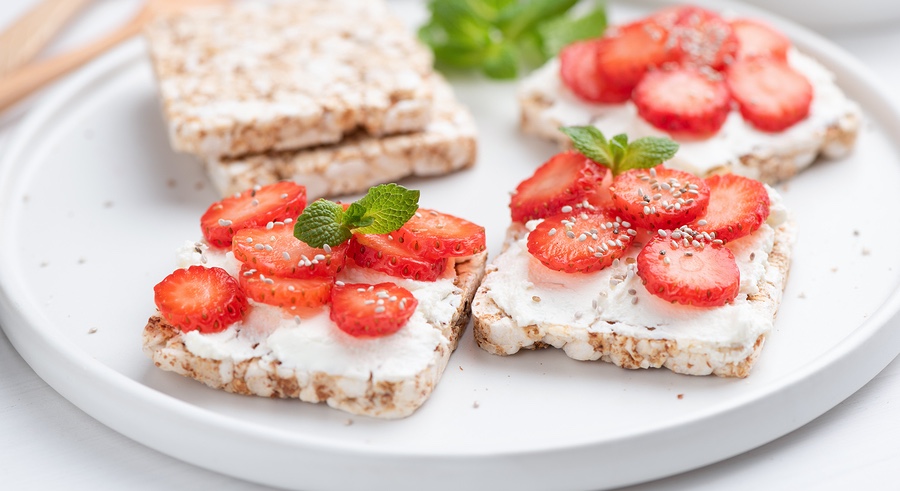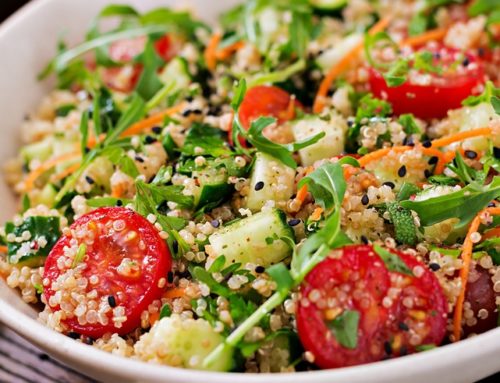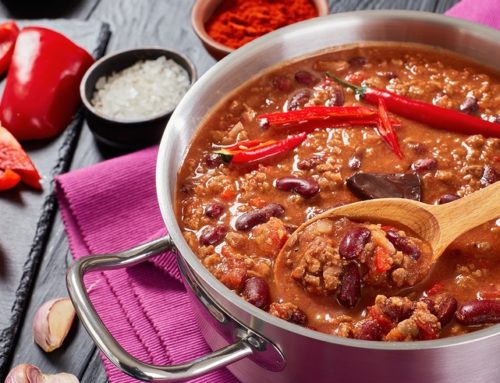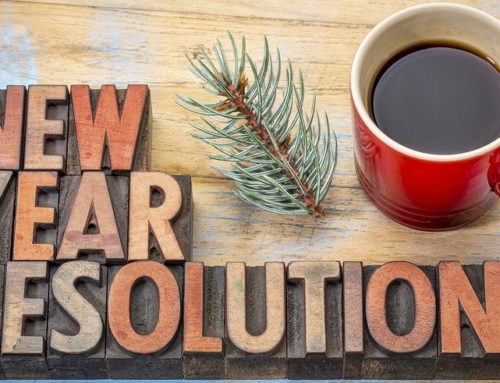When I ask my clients to think about their eating habits and identify areas where they struggle, many of their responses share a common theme: snacking. If this sounds familiar, read on! I’ve put together a list of tips to help you avoid unnecessary noshing during the day, and how to keep it healthy when you need a little pick-me-up.
Plan Better Meals
One of the reasons you may find yourself seeking out a snack during the day is almost too obvious: you’re hungry! But, if your tummy starts rumbling soon after a meal, consider changing up what you’re eating. Meals that are high in protein and fiber will keep you satisfied for much longer than those high in starches such as bread, pasta, rice, and other grains. Try replacing those foods with options like eggs, chicken, beans, yogurt, fruits and vegetables, which will provide a satisfying amount of protein and fiber. A well-planned meal should hold off those hunger pangs for a few hours, making snacking less tempting.
Hydrate
Not a big water drinker? There’s a good chance your snacking woes are related to inadequate hydration. Common symptoms of dehydration, like fatigue and mental fogginess, often send us searching for a snack, when what our bodies really need is water. Tackle the real problem by finding ways to increase your fluid intake: carry a water bottle with you, set a reminder on your phone, or try different calorie-free beverages that you are more likely to drink.
Tune In
There are many reasons why we snack. Aside from hunger or thirst, emotions like stress, boredom or sadness often send us seeking snacks. Over time, we can get so used to overriding our feelings of hunger with emotional cues that we stop paying attention to our bodies altogether. Next time you find yourself reaching for a snack, stop and take a moment to tune in to your body first. Are you feeling hunger, or is it something else? Try to eat only when you are truly hungry. Look for healthier outlets to address emotions like stress or sadness: things like exercise, deep breathing, or connecting with a loved one. The benefits will last much longer than a snack and can go a long way towards improving your overall wellbeing.
Snack Strategically
Many people see snacks as harmless, when in reality they can add up to a significant portion of your daily intake. With this in mind, make it a point to plan these “mini meals” the same way you would a regular meal. Be sure to include quality protein, fruits or vegetables, and avoid less healthy choices like refined starches and sugar (the key ingredients in many packaged, processed “snack” foods).
Clear Out Your Kitchen
Let’s say you’ve had a lifelong weakness for ice cream, but eating it regularly doesn’t jive with your health goals. Keeping it easily accessible in your freezer is probably not the best plan. A better course of action would be to make a special occasion of it by going out for an occasional scoop of ice cream. This way you’re preserving its status as a special treat, rather than that “bad choice” staring you in the face every time you open the freezer. The same can be true for any foods you’re aiming to keep out of your daily diet – avoid keeping them easy-to-reach.
Remember, snacking doesn’t have to be a bad thing! In instances where you truly need extra nourishment, such as after a heavy workout, or during a long meeting that’s running into lunchtime, snacks are important. Follow the suggestions above to help make sure that your snacking habits are healthy ones!





